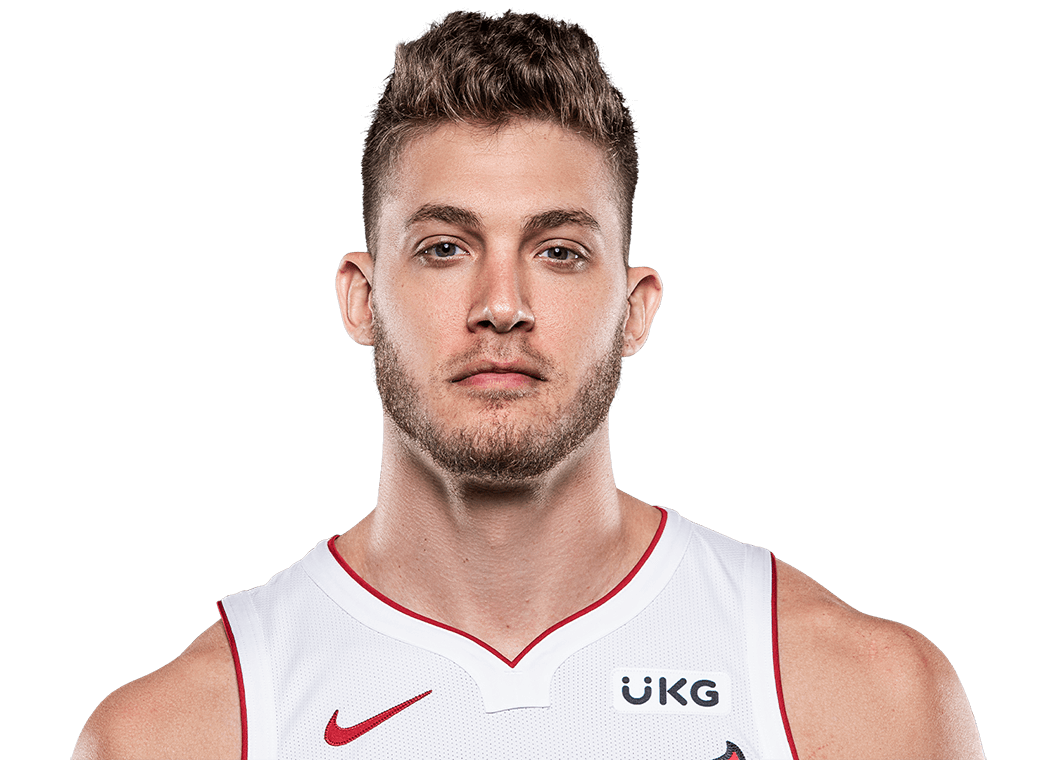
c/o nba.com
Last week, I called my mom to talk about what I should make for my first Passover seder away from home. We talked about the dishes I’ll make and which ones might be too difficult for a college student with a communal kitchen. When I hung up the phone, I started scrolling through Instagram and noticed that a friend had reposted something that Julian Edelman, a wide receiver for the Patriots, had written.
“An open letter to Meyers Leonard,” it starts. “So we’ve never met, I hope we can one day soon. I’m sure you’ve been getting lots of criticism for what you said. Not trying to add to that, I just want to offer some perspective. I get the sense that you didn’t use that word out of hate, more out of ignorance. Most likely, you weren’t trying to hurt anyone or even profile Jews in your comment. That’s what makes it so destructive. When someone intends to be hateful, it’s usually met with great resistance. Casual ignorance is harder to combat and has greater reach, especially when you command great influence. Hate is like a virus. Even accidentally, it can rapidly spread. I’m down in Miami fairly often. Let’s do a Shabbat dinner with some friends. I’ll show you a fun time.”
I immediately searched for Meyers Leonard to see what had happened. It was, unfortunately, exactly what I was expecting.
Meyers Leonard played for the Miami Heat before his trade to Oklahoma City Thunder on Wednesday. On March 11 he was fined 50,000 dollars and suspended from all Heat team activities for using an anti-Semitic slur while streaming “Call of Duty” on Twitch. He apologized over Instagram and will be attending mandatory cultural diversity sessions.
To be quite honest, I don’t exactly know how to summarize my feelings about what happened. I feel like this touches upon a lot of areas: how important celebrities (and specifically professional athletes) are to our own understanding of what is and isn’t acceptable, the rise of video game streaming and the normalization of violent language in that part of the Internet, rising anti-Semitism…the list could go on.
Seeing someone as prominent as Leonard spread hate, whether out of ignorance or otherwise, stings. As Edelman said, casual ignorance is dangerous. He’s a figure in the public eye, and people have taken note of what he said. The casualness of Leonard’s anti-Semitism just makes it seem more acceptable. He probably actually introduced that slur into some people’s vocabulary. Slurs shouldn’t be normalized. But that’s not a hot take.
Perhaps the reason this story spoke to me in such a personal way is that I am Jewish, though I mean this in the loosest sense of the word. I’ve always loved the traditions, but I’m nowhere near as religious as most of my fellow Jews. I can recite a prayer, maybe two. I never had a bat mitzvah. I don’t know Hebrew.
And yet, I’ve still been hurt by anti-Semitism, as have my family members. My older brother owns a prayer book given to my grandfather by his uncle in 1943, on the occasion of his bar mitzvah. My grandfather was regularly targeted (including physically) in his hometown of Burlington, Vermont simply for being Jewish. The prayer book has a beautiful inscription about how becoming a Jewish man in the 1940’s was fraught due to the “current political situation in the world.” How I wish the inscription wasn’t still relevant to today.
People around me have made Holocaust jokes. I’ve had people regurgitate stupid, harmful stereotypes about Jewish people. I’ve seen members of Congress as recently as a few months ago promote anti-Semitic conspiracy theories about…space lasers.
It’s easy to feel like anti-Semitism is a thing of the past. So much of Jewish tradition is dedicated to speaking about our history, especially Passover, which is coming soon on March 27. Passover is a time where everyone comes together to remember the hardships Jews have endured and the importance of remembering our history. It’s also very much about the hope for a better tomorrow.
I can’t really invite Meyers Leonard to my college Passover seder, for a multitude of reasons. It’s probably not up to a professional basketball player’s meal plan standards. The University says no visitors on campus, and I don’t think they’d make an exception in this case. Anyway, I’m not sure I would want to break the rules for him. Why should I be the one to educate Leonard on the dangers of anti-Semitism? But at the same time, if I’m not the one to provide education, who will? It’s impressive that Edelman was up for the task of reaching out to Leonard in such a thoughtful way. He and I seem to have a somewhat similar relationship with our Jewish faith; later in life, we are becoming more connected to our family’s beliefs. I wouldn’t blame him if he hadn’t reached out at all, too exhausted, too angry, and too hurt to do anything about it. It shouldn’t be up to Jewish people to have all the answers. Non-Jews should do their part.
To allies of the Jewish community, I ask you to think about what you can do to help your Jewish friends. Don’t step back when you hear someone say something stupid. Step up.
Caroline Bonnevie can be reached at cbonnevie@wesleyan.edu.